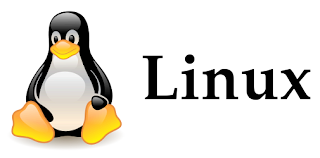Linux (lee'nuhks/ or /li'nuks/,_not_/li:'nuhks) is a free and open-source operating system first developed by Linus Torvalds and friends that was first announced August 25, 1991. The Linux kernel runs on numerous different platforms including the Intel and Alpha platform and is available under the GNU General Public License.
The system can be distributed, used, and expanded free of charge. In this way, developers have access to all the source codes, thus being able to integrate new functions or to find and eliminate programming bugs quickly. Thereby drivers for new adapters (SCSI controller, graphics cards, etc.) can be integrated very rapidly.
The system can be distributed, used, and expanded free of charge. In this way, developers have access to all the source codes, thus being able to integrate new functions or to find and eliminate programming bugs quickly. Thereby drivers for new adapters (SCSI controller, graphics cards, etc.) can be integrated very rapidly.
Where is Linux used?
Presently, Linux is successfully being used by several
millions of users worldwide. The composition of users varies from
private users, training companies, universities, research centers, and
companies. Below are some examples of where Linux is used today.
- Android phones and tablets - Android phones and tablets use a form of Linux.
- Servers - A vast majority of the web servers that run many web pages (including this one) are using Linux.
- TV, Cameras, DVD players, etc. - Most of the appliances that use some form of a computer use Linux.
- Amazon - Many of the computers that help run Amazon use Linux.
- Google - Computers that help run Google and Google search results use Linux.
- Planes - Airplanes computers and screens you watch on the plane use Linux.
- U.S. Postal service - The computers and servers that help run systems to sort and manage mail in the U.S.
- NYSE - The New York Stock Exchange uses Linux to help run its exchange.
- LHC - The Large Hadron Collider is using Linux.
- OLPC - The One Laptop Per Child program used Linux on all of its computers
Who makes Linux now?
Thousands of organizations, corporations, and individuals
help develop Linux and each of its various distributions. For more
information, visit LinuxFoundation.org. You can read what's happening right now in Linux development at LKML.org, the Linux kernel mailing list.
Linux distributions, flavors, and variants
Linux may be obtained in two different ways. All the
necessary components can be downloaded free of charge from the Internet,
which means an operating system can be assembled for almost nothing. An
alternative is to use a so-called distribution,
which is a Linux variation offered by many companies. They include a
broad range of applications and full programs that significantly
simplify the installation of Linux.
There are hundreds of different distributions of Linux
that have been released. Below are just a few that we currently have
listed on our site. A great site that lists almost every distribution,
as well as rankings is DistroWatch.










No comments:
Post a Comment